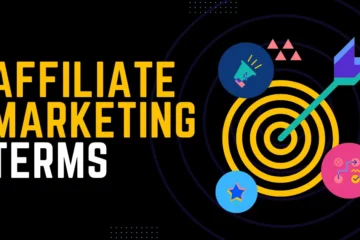Is Affiliate Marketing A Pyramid Scheme?

The world of online business is teeming with opportunities for earning an income, and affiliate marketing emerges as a prominent player in this digital arena. As I set the stage here, it’s crucial to understand what affiliate marketing is: at its core, it’s a performance-based marketing strategy where a business rewards individuals (affiliates) with commissions for each visitor or customer brought about by the affiliate’s marketing efforts.
Equally as important is clarity on pyramid schemes, notorious as illegal business models where income is generated primarily from recruiting others into the scheme, rather than from the sale of actual products or services.
You may have come across a common question. Is affiliate marketing just a sophisticated front for a pyramid scheme? To address this, I’ll debunk the myths and shed light on the distinct differences that set affiliate marketing apart from the deceptive nature of pyramid schemes. Understanding these differences not only clarifies misconceptions but also ensures you can make informed decisions as you navigate the online business landscape.
In what follows, I’ll dive into the legal distinctions and structures that separate legitimate affiliate marketing practices from the outlawed pyramid scheme operations. Awareness is your shield in this domain, and I aim to arm you with knowledge that not only protects but also empowers you in the field of affiliate marketing.
Affiliate Marketing vs. Pyramid Schemes

It’s essential to grasp the legal framework that separates affiliate marketing from pyramid schemes. Unlike pyramid schemes which are inherently fraudulent, affiliate marketing is a recognized and legal business model. This distinction lies at the very heart of each system’s legality and operational ethics.
Affiliate marketing operates under regulations that ensure fair commerce. Marketers earn commissions solely based on legitimate sales or referrals, not on the recruitment of others to the system. In stark contrast, pyramid schemes often dodge the notion of tangible products or services, focusing on the endless recruitment of participants with promises of high returns for those at the top.
Various regulatory bodies like the Federal Trade Commission (FTC) in the United States play a pivotal role in defining and enforcing the legality of business practices. The FTC has guidelines that help distinguish legitimate affiliate marketing from pyramid schemes. It often takes action against schemes that bear a resemblance to illegal pyramid operations.
Case studies where legal action has successfully been pursued against pyramid schemes underscore the critical differences between these scams and legally-operating affiliate marketing programs. Courts look for evidence of money primarily being made from recruitment rather than actual sales to external customers as a prime indicator of a pyramid scheme.
The Economic Model of Affiliate Marketing

I earn my keep as an affiliate marketer, not by climbing corporate ladders, but through commissions. For every customer I refer to a business’s product or service, there’s a reward in store for me. It’s a performance-based setup; no sales, no gain.
Transparency is a non-negotiable in my book. Every promotion I put out there carries a clear notice—as it should—that I’m getting a commission for this. It’s about trust. Both the customer and the merchant need to know that the products I endorse are genuinely backed by me, not just for the paycheck.
When talking about adding value, affiliate marketing really shines. It’s a win-win-win. Consumers get informed on products, merchants get increased sales, and I get a cut for facilitating it. This differs massively from pyramid schemes, where money mainly exchanges hands through recruitment, often leaving a product as an afterthought.
With the pyramid scheme’s ‘pay-to-play’ approach, you’re shelling out cash just to participate. You’re paying for the ‘opportunity’ to sell products, but the actual emphasis is on getting more people under you in the hierarchy. That’s a model that’s not just unsustainable; it’s illegal.
More About Affiliate Marketing:
- How To Learn Affiliate Marketing For Beginners
- Do You Need A Large Following For Affiliate Marketing?
- Optimize Your Earnings The Ultimate Dos and Don’ts of Affiliate Marketing
- How To Drive Traffic To Your Affiliate Website
Identifying Pyramid Scheme Traits in Affiliate Programs

When I explore the world of affiliate marketing, my priority is to discern between genuinely rewarding opportunities and those that shadow the troubling structure of a pyramid scheme. I’ve come to recognize certain red flags that could signal when an affiliate program leans more towards a pyramid scheme.
The cornerstone of any pyramid scheme is an overwhelming emphasis on recruitment rather than on genuine product sales. If a program insists that I recruit more participants instead of selling a product or service, I take that as a warning sign. Pyramid schemes often mask themselves with products but ultimately operate by fees collected from new recruits.
Another notable feature of pyramid schemes is the concept of ‘downlines.’ In a pyramid scheme, a participant’s earnings are heavily dependent on the number of people they recruit and their recruits’ subsequent sales or recruitment. This structure differs significantly from affiliate marketing, where income is based on sales generated from referrals, not on the recruitment of more affiliates.
Before affiliating myself with a program, I ask some critical questions. Does the program focus on selling a product or service that offers real value? Is the compensation primarily derived from sales rather than from recruiting additional affiliates? Are the expectations for earnings realistic and not just based on endless recruitment?

By carefully considering these aspects, I can avoid traps that pyramid schemes often set. Doing due diligence not only prevents legal and ethical complications but also aligns me with programs that are more likely to lead to long-term success and establish me as a trusted affiliate marketer.
Moving forward, it’s important to look at success stories within the affiliate marketing industry. This helps to not only illustrate the legitimacy of affiliate marketing but also to identify the best practices that distinguish ethical opportunities from perilous schemes.
Success Stories: The Legitimacy of Affiliate Marketing

I’ve seen my share of skepticism around affiliate marketing, and admittedly, it’s often warranted. The shadow of doubt cast by pyramid schemes does linger. However, real success stories in the affiliate world paint a different picture. An honest one. These narratives crush the pyramid scheme myth and illuminate the right ways to do affiliate marketing.
Take, for example, bloggers who start from scratch, focusing on niches they’re passionate about. Over time, their in-depth reviews and genuine recommendations create a loyal following. Some of these bloggers now make substantial earnings through affiliate commissions, proving that with consistency and hard work, affiliate marketing can be a viable income.
More About Niches:
- 10 Profitable Niche Blogging Ideas You Can Start Today!
- 5 Essential Tools For Successful Niche Blogging
But don’t take my word for it. A quick search yields countless testimonials from individuals who have built a career in affiliate marketing without ever having to recruit a soul. Their success hinges on the quality of their content and their ability to help others make informed purchasing decisions.
And then there’s the strategic aspect. Effective affiliate marketers employ strategies that lean heavily on SEO, content marketing, and trustworthy relationships with their audience. They select partnerships carefully, promoting only products they believe in and that add genuine value.
It’s also worth noting the significant role played by reputable affiliate networks in these success stories. They act as middlemen, ensuring fair play and transparency. Companies like ShareASale, Commission Junction, and Amazon Associates are just a few examples of platforms that prioritize ethical practices and maintain rigorous standards for both affiliates and merchants.
Staying Safe and Ethical in the Affiliate Marketing Industry

Navigating the affiliate marketing landscape requires vigilance and a solid grasp of what is fair and right. Unquestionably, the industry offers promising opportunities for those willing to put in the work and uphold ethical standards.
As an affiliate, I practice transparency by disclosing affiliate links, and I focus on products I genuinely believe in. This helps foster trust and maintain credibility. I also strive to keep abreast of the latest guidelines and best practices. Staying educated is pivotal to ensure I’m not inadvertently crossing the line into unethical territory.
What’s crucial is the choice of affiliate programs. I strongly advise thorough research and referral to trusted reviews before committing to any program. Look for clear, straightforward commission structures and a focus on product quality over recruitment.
Embrace the wealth of tools designed to help affiliate marketers monitor their campaigns and verify the trustworthiness of affiliate programs. These tools can make it much easier to stay on the right side of the line.
MOST IMPORTANTLY, remember that success in affiliate marketing is not about quick wins; it’s about building lasting relationships. By dedicating yourself to being a helpful and honest marketer, you enrich the entire industry, and foster an environment where both marketers and consumers can thrive.
In concluding, legitimate affiliate marketing is a world apart from the disreputable pyramid schemes. By following the guidelines set out here, and aiming for transparency and ethical practice, one can navigate this dynamic industry with confidence and build a sustainable, rewarding career.
AI Powered WordPress Websites


